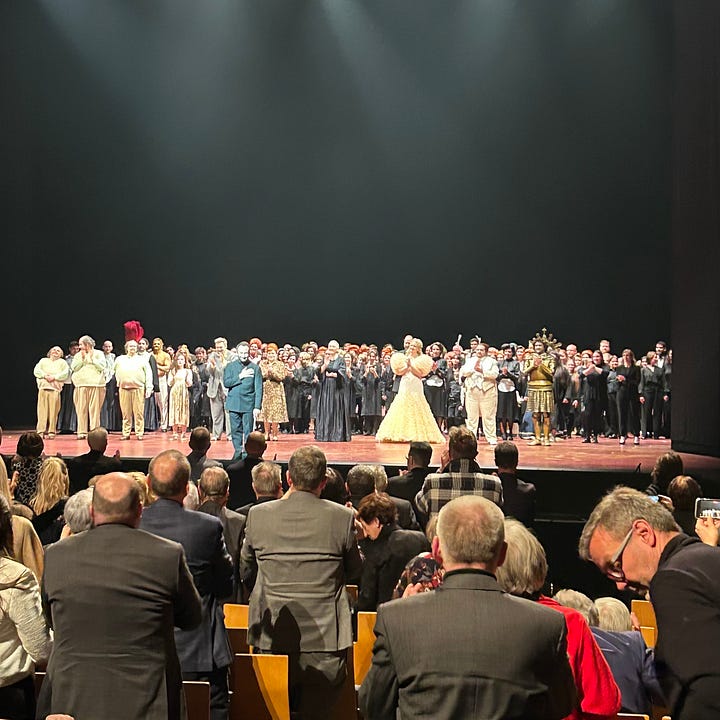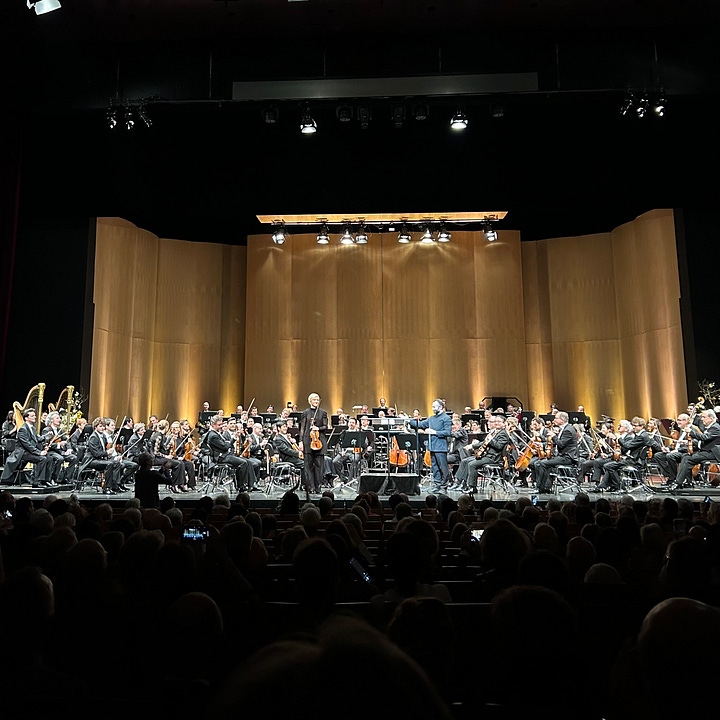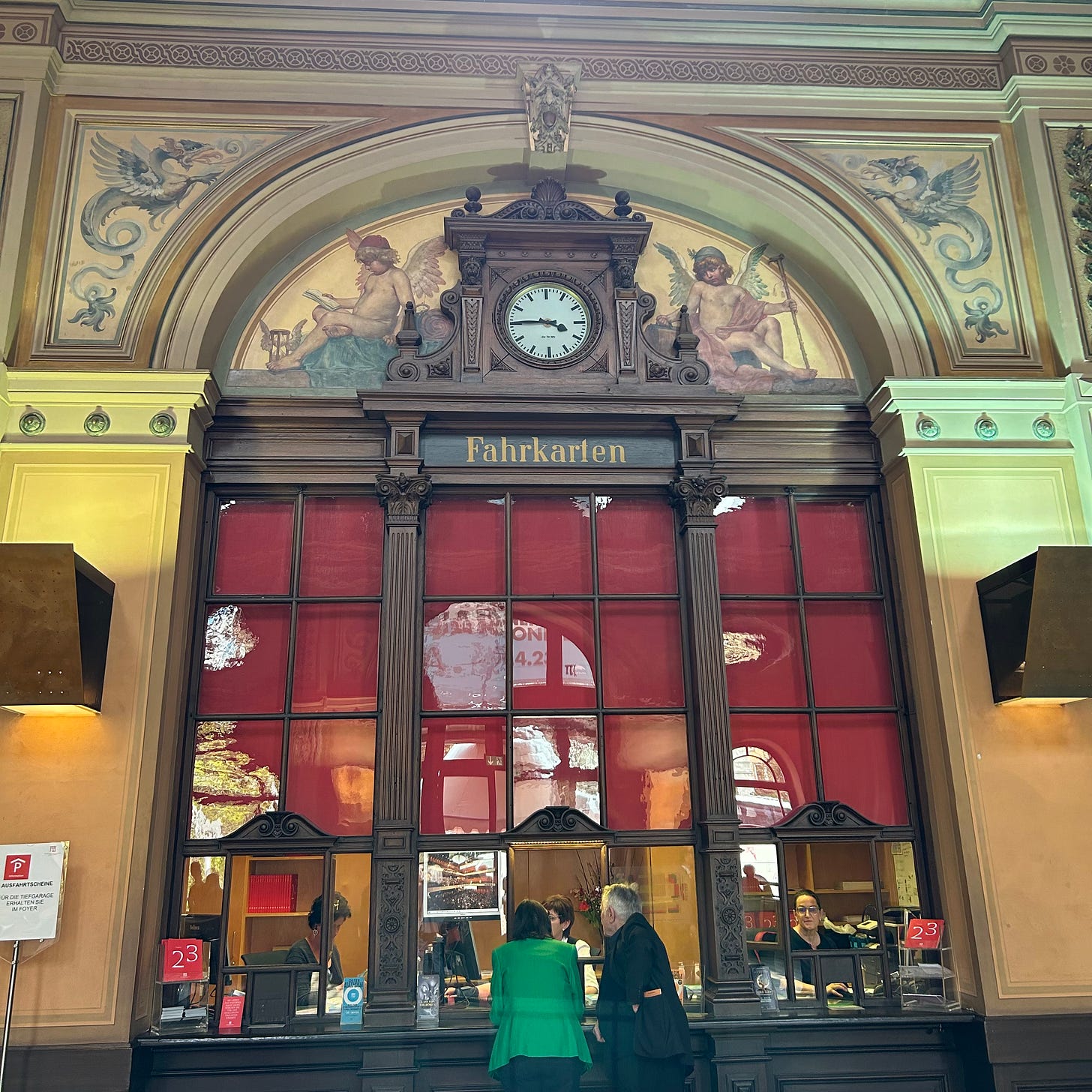So good they named it twice
On the next stop of my Interrail trip, I head to Baden-Baden to hear Kirill Petrenko and the Berlin Philharmonic play Strauss
From Bach in Leipzig to Strauss in Baden-Baden was quite a journey – four and a half hours by train (coincidentally, the length of Die Frau ohne Schatten, which I was going to see), passing through historic music hotspots on the way, including Erfurt, Eisenach and Mannheim, and imagining composers doing the same by carriage. Musically, the voyage seemed much further, though.
Baden-Baden is one of those magical place names that has always kindled my imagination – whether through characters in novels visiting the spas or casinos, musicians summering (Clara Schumann, Brahms, Berlioz and Pierre Boulez all lived there), my late widowed German refugee grandmother returning to take the waters, and even the line in the ‘Triplets’ song from Bandwagon (‘Every summer we go away to Baden Baden Baden).
It feels like little can have changed since Clara Schumann and Brahms might have strolled down the Lichtenaler Allee, along the little Oos river, on their way into town. Today, people still promenade, eating ice cream, although most wearing elegant puffer jackets and smart trainers rather than gowns and suits. The town retains its character and charm, with plenty of the original grand buildings and casinos, and old houses set on the hill, even if it’s a little run-down around the edges. There seems to be quite a mix of nationalities, but especially Russians – in the 19th century it was quite a centre for the Russian aristocracy, as well as writers including Turgenev, Tolstoy and Dostoevsky.
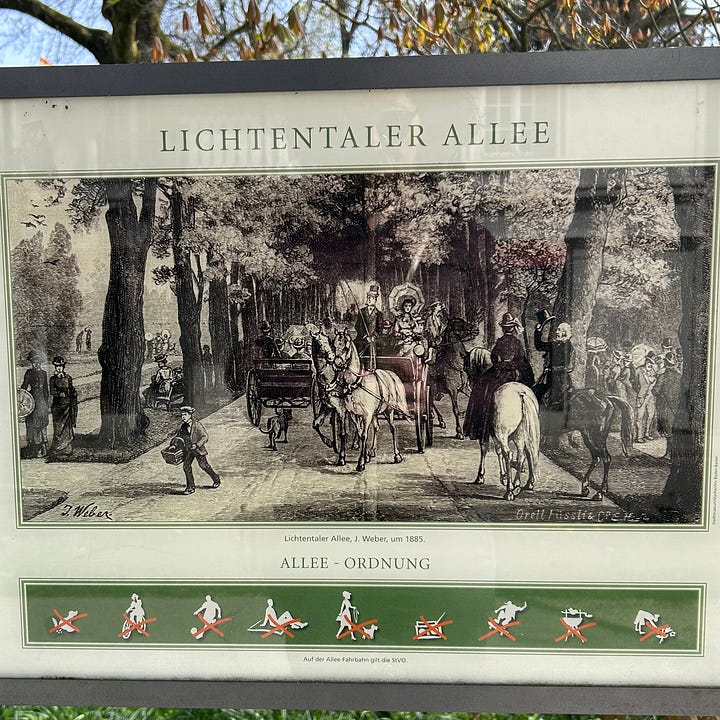
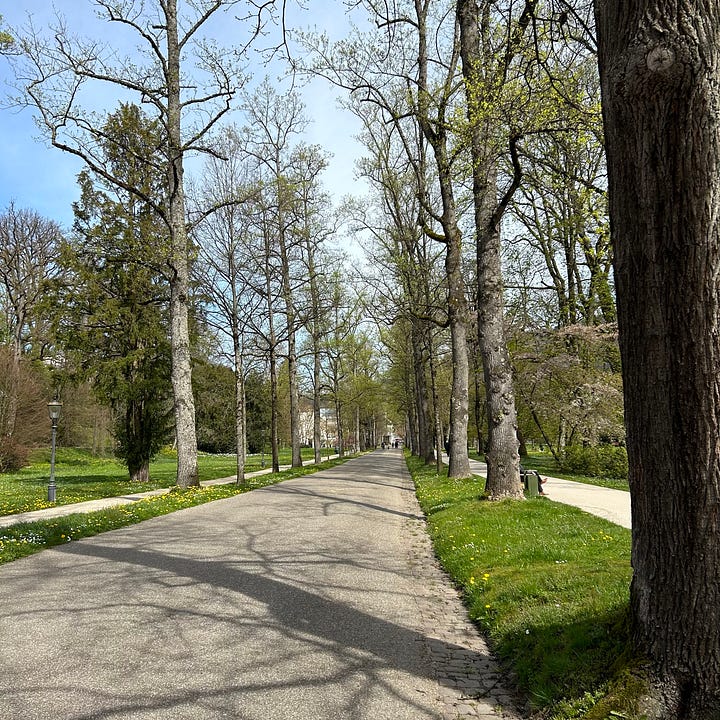
For visitors who had arrived in the town via rail in the early 20th century, perhaps the greatest shock today would be that the railway station into which they rolled now serves as the Festspielhaus itself, its majestic neo-Renaissance building redesigned in 1998 to encase one of the largest opera stages in Europe. The beautifully adorned original ticket office opens into light and elegant public spaces which lead to an unfussy and comfortable hall that seems to work acoustically for both opera and symphonic works.
This was my first time with Die Frau ohne Schatten. It turns out that reading the Wikipedia entry does not prepare one for a plot that is highly convoluted, or a plot device (the eponymous shadow) that is complex and contested (it seems from subsequent Facebook conversations that friends who have seen the opera many more times than I are not much the wiser).
A potted summary of the four and a half hours, from what I managed to process, is that the Empress, who lives in a netherworld between humans and gods, must go to earth to find a shadow, or else her husband, the Emperor, will turn to stone. She and her Nurse go to the other side to buy one from a human couple, but after various twists and turns that teach her about love and compassion, she ultimately chooses not to take their shadow away from them. The Emperor has already been turned to stone, but miraculously he becomes flesh again, she finds her shadow and they all live happily ever after.
On one level the whole opera is about making babies and women’s purpose lying therein (although the men are as much defined by their having children). Lydia Steier’s production superimposes a hot modern topic by setting the human couple’s home as a designer baby shop, with couples stopping by to choose dolls from the windows and taking them away in plastic bags. There are other somewhat jumbled viewpoints on the theme: the Empress is dressed as Ginger Rogers, presumably some idealised stylisation of womanhood; there is a boarding school full of lonely girls and an old-fashioned maternity hospital for unmarried young mothers; and the set is very, very pink. Throughout, a young actress mirrors the emotions of the action on stage – I’m not sure whether she’s the Empress’s alter ego, or the baby the Empress hasn’t had yet, but at various points she’s called to feed from the (plastic) breast of the Virgin Mary and fling mud around the stage (I hope she gets a good holiday now and possibly therapy).
Does the shadow have to represent having a baby, though? There seem to be other interesting possibilities. In some psychoanalytic sense we all have a shadow, whether that is our unconscious or our secrets, and it’s better to come to terms with it – better out than in, as it were. Philip Pullman’s stories have another version of this with his ‘daemons’, animals that attach to humans as a reflection of their own inner being.
Structurally, though, the opera reminds me of stories such as The Wizard of Oz, It’s a Wonderful Life, or even High Society, where the protagonist must go on a journey to a different life to discover that they always had what they needed in the first place – the old ‘there’s no place like home’ trope. Once the Empress has found her empathy and love for humanity, which she couldn’t have as a half-spirit, she finds her shadow and everything comes right.
There are many people better informed than I to explore the subject, so leaving the narrative aside, the music is of course fabulous. It never really gets anywhere but it sweeps you up in its unending waves. This was also my first time hearing Kirill Petrenko, whose appearances in London are like hen’s teeth, and that the four and a half hours passed in no time must surely be down to his pacing of the many ebbs and flows, and the clarity of the textures he created with the Berlin Philharmonic.
Just occasionally his hands would teasingly show above the parapet of the pit, flashing in the light. The next evening, I got to see him in his full glory in more Strauss – Four Last Songs with soloist Diana Damrau and Ein Heldenleben – but I kept coming back to those hands, by turns delicately rippling like sea anemone as he stood otherwise still, listening to his players, encouraging them, but then bursting with extreme energy and seemingly chaotic movement when rallying more complicated textures. All this poetry and drama happen on the podium, and when he turns around at the end he smiles gently and walks off stage grinning to himself as if he’s just heard a good joke, rather than having conducted supreme performances. It’s not hard to see why players and audiences alike seem to adore him – the opera audience only stood to ovate and cheer when he was finally brought on stage.
With Four Last Songs and Ein Heldenleben I’m back on home turf after the opera ([gratuitous plug alert] my orchestra is playing the Four Last Songs at Queen Elizabeth Hall on 17 May) and I found more to love in the music – unsurprisingly, everything seems more compact and the thematic material stronger (confession: I don’t always have patience for Strauss’s meanderings). It was also wonderful to watch the Berlin Phil in flow – given full rein by Petrenko, their playing is fearless and vital. This isn’t whipped-cream or schmaltzy Strauss – the sound quality itself is almost austere, but all the more vivid and human for it.
The orchestra was led here by Vineta Sareika-Völkner, former leader of the Artemis Quartet, who recently took on one of the three joint concertmaster positions, the first woman to do so. She dispatched the concerto-like solo part of Ein Heldenleben with consummate ease and beautiful tone, and her solo in Beim Schlafengehen (‘While going to sleep’) was quite literally heavenly, climbing ever higher and nearer to the inevitable – a piercingly exquisite moment. Several friends have told me this would be their choice for their last moments on earth, and I understand why – comfort, beauty, transcendence. Perhaps, in some respects, Bach and Strauss aren’t so different after all.
